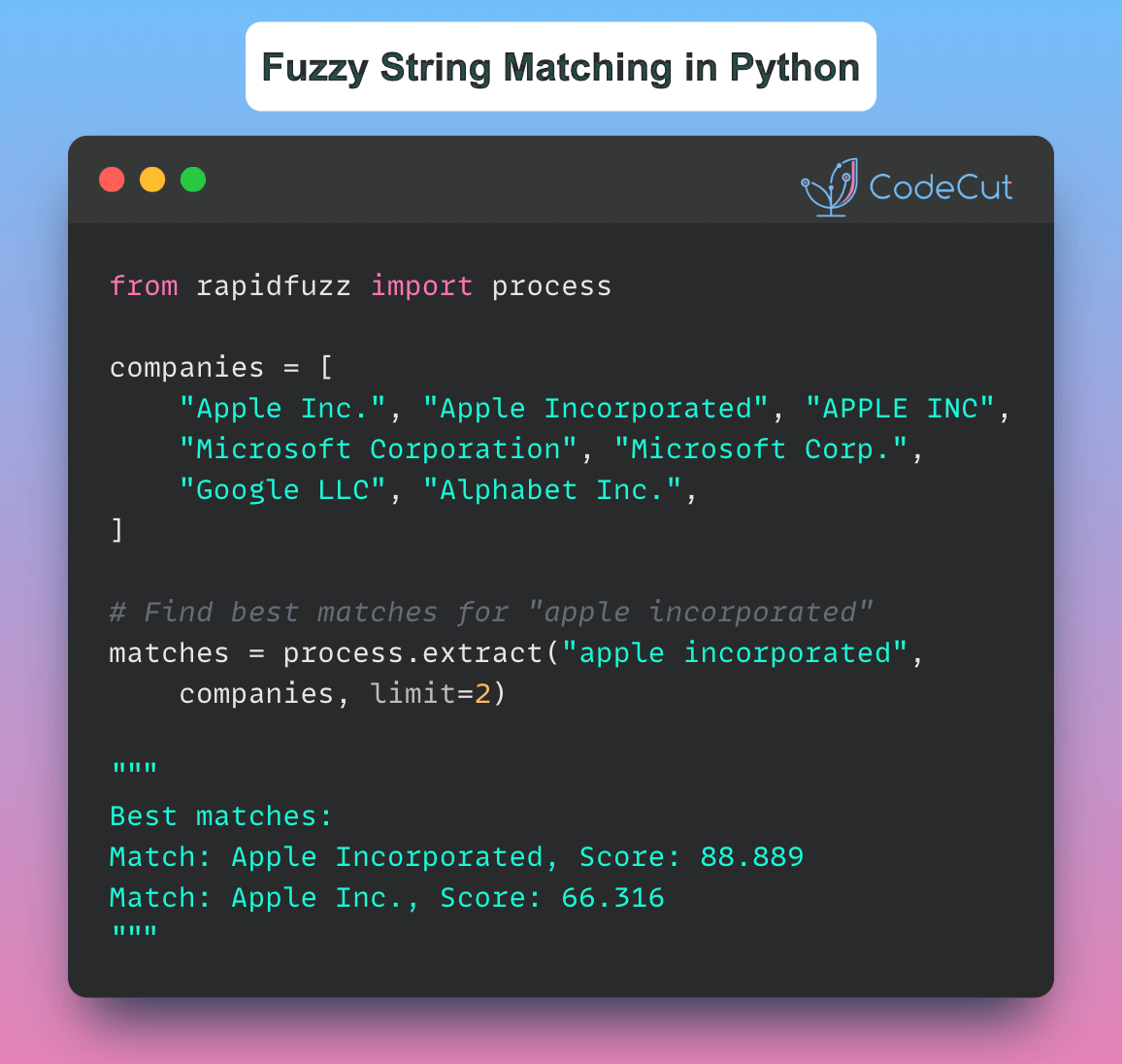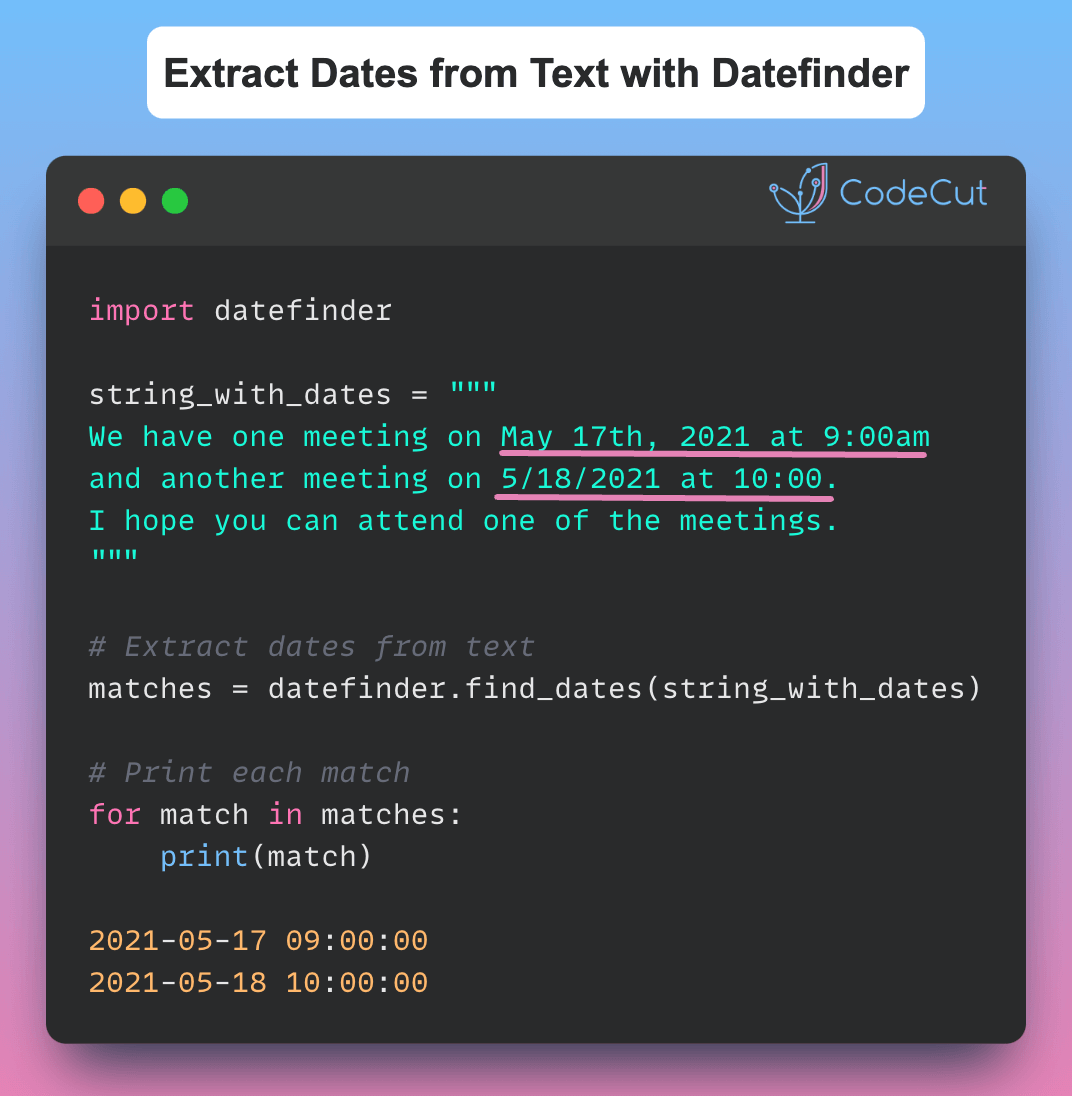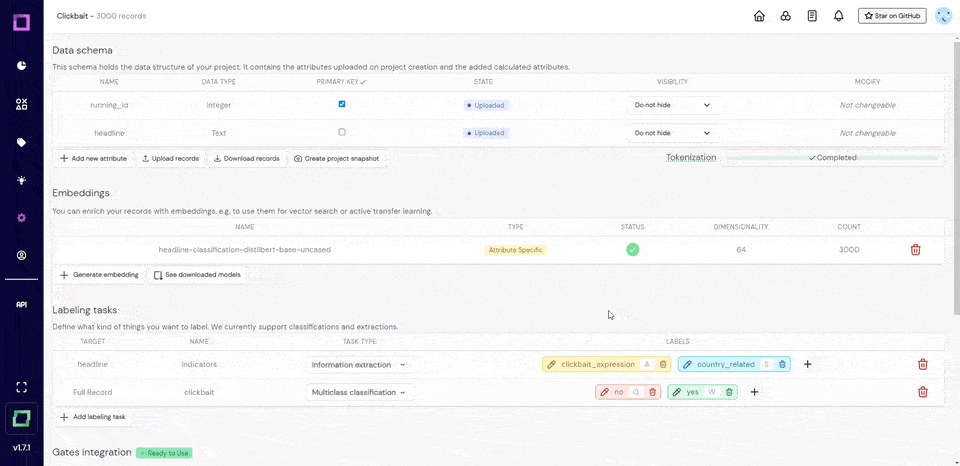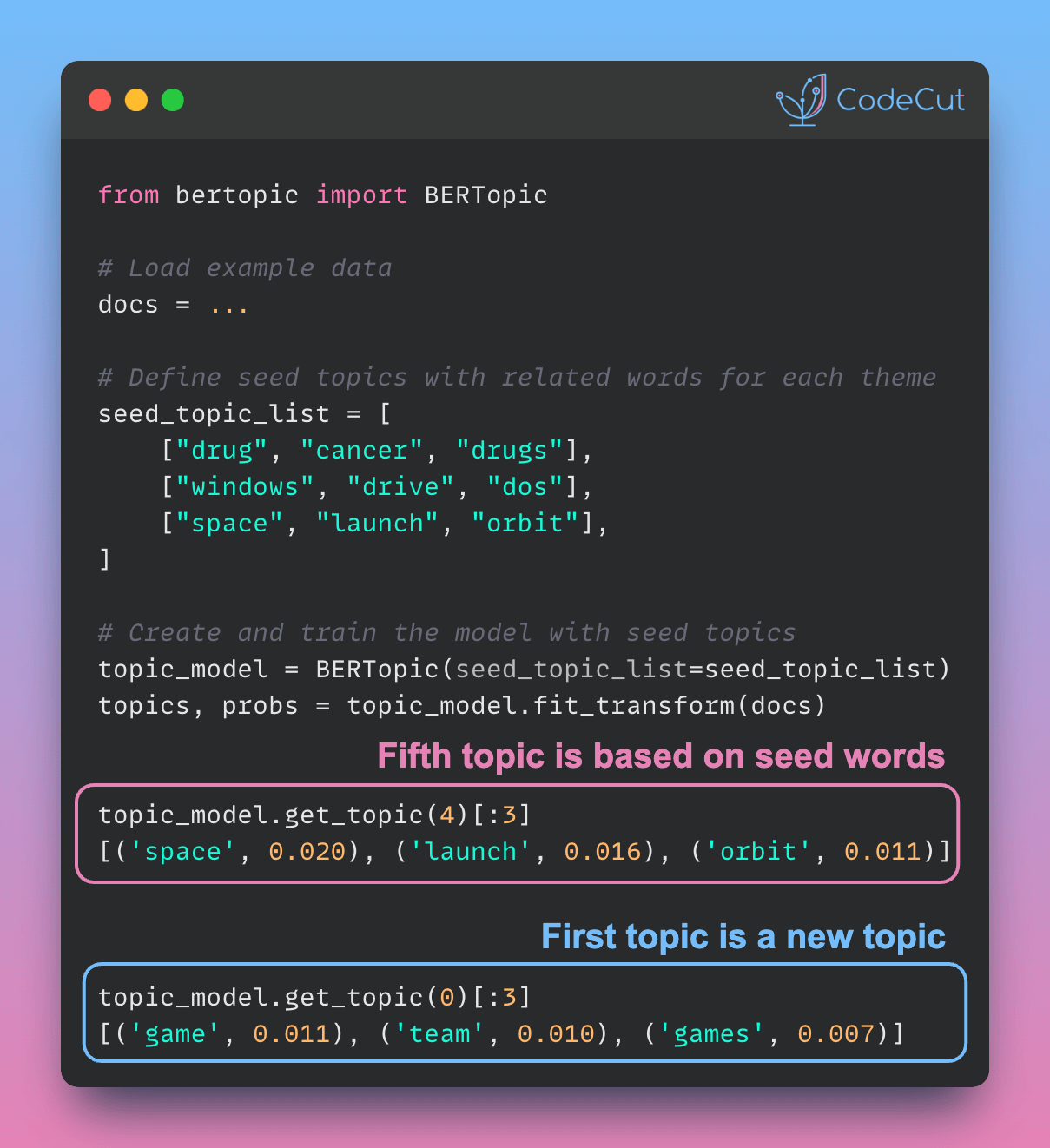Motivation
When dealing with real-world data, exact string matching often fails to capture similar entries due to typos, inconsistent formatting, or data entry errors. For example, trying to match company names like “Apple Inc.” with “Apple Incorporated” or “APPLE INC” requires more sophisticated matching techniques.
Here’s an example showing the limitations of exact matching:
companies = ["Apple Inc.", "Microsoft Corp.", "Google LLC"]
search_term = "apple incorporated"
# Traditional exact matching
matches = [company for company in companies if company.lower() == search_term.lower()]
print(f"Exact matches: {matches}")
Output:
Exact matches: []Introduction to RapidFuzz
RapidFuzz is a fast string matching library that provides various similarity metrics for fuzzy string matching. It’s designed as a faster, MIT-licensed alternative to FuzzyWuzzy, with additional string metrics and algorithmic improvements.
Installation is straightforward:
pip install rapidfuzzFuzzy String Matching
RapidFuzz provides several methods for fuzzy string matching. Here’s how to use them:
Compare two similar strings:
Simple ratio comparison:
from rapidfuzz import fuzz, process
similarity = fuzz.ratio("Apple Inc.", "APPLE INC")
print(f"Similarity score: {similarity:.3f}")Output:
Similarity score: 31.579Find best matches from a list:
# Sample company names with variations
companies = [
"Apple Inc.",
"Apple Incorporated",
"APPLE INC",
"Microsoft Corporation",
"Microsoft Corp.",
"Google LLC",
"Alphabet Inc.",
]
# Find best matches for "apple incorporated"
matches = process.extract("apple incorporated", companies, scorer=fuzz.WRatio, limit=2)
print("Best matches:")
for match in matches:
print(f"Match: {match[0]}, Score: {match[1]:.3f}")Output:
Best matches:
Match: Apple Incorporated, Score: 88.889
Match: Apple Inc., Score: 66.316RapidFuzz automatically:
- Calculates similarity scores between strings
- Handles case sensitivity
- Provides multiple matching algorithms
- Returns confidence scores for matches
Conclusion
RapidFuzz significantly simplifies the process of fuzzy string matching in Python, making it an excellent choice for data scientists and engineers who need to perform efficient and accurate string matching operations.





